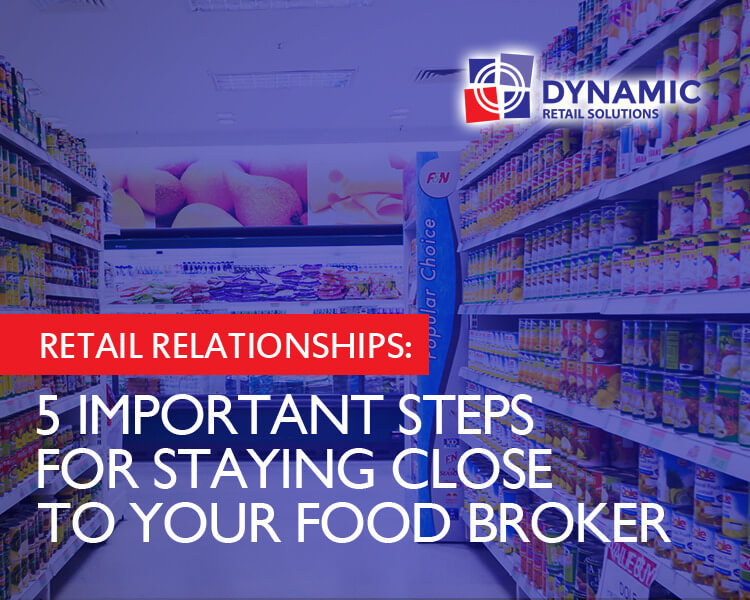Staying close to your food broker is more important than you might think. When it comes to achieving, and maximizing your food brand’s success, both you and your broker will need work hard at advancing a professional relationship through timely communication.
Your broker is the person that’s helping you get your food product out on shelves so that you can expand your profit margins. In other words, maintaining the correct relationship with this individual could help you to achieve sustainable growth over the years. Here are just a few tips on how you can improve communication with your distributor today.
1. Communicate on a Monthly Basis
The first step in staying close to your broker is to get in touch via phone. While email can be useful for asking any questions you might have, if you want to maintain a good relationship, a phone conversation is generally a better solution. Long-term relationships are vital to the success of your brand – and having voice-to-voice communications will allow you to bond more significantly as people.
2. Discuss your Needs Regularly
A food broker is an independent sales agent that works for your business by negotiating sales for manufacturers and food producers. Of course, he or she can’t create the best results for your business if they have no idea what you’re trying to achieve.
While most food businesses have the same basic goal “to make money”, they also have underlying ambitions that help to designate the journey that they need to take in speaking to new buyers and even exporting their food over local boundaries. Tell your food broker what you need, and you’ll have better success when selling your foods to supermarkets and mass merchants.
3. Ask for Extra Help
Sometimes, when you’re assessing your needs and business goals, you’ll find that you need some extra help dealing with an important aspect of growing your business. While not all food brokers will have the same skill set – many possess a range of talents that can help you to better improve your chances of making the next step for your company.
For instance, talking to your food broker about something like international exportation could lead them to suggest an international buyer showcase as a way for you to allow new investors to sample your products.
4. Stay Updated on the Marketplace
Salespeople and brokers aren’t necessarily the same thing. While a salesperson would simply sell your line, a broker helps you to understand the market that you’re in, and effectively get more bang for your buck. For the right price, brokers can help you stay updated with marketplace trends by helping you to understand things like logistics, demonstrations, promotions, and even the packaging changes that you might need to make to address a new potential client.
The more you speak to your broker about what they can do for your company, and how they can make steps to negotiate more deals for your business, give your brand a presence, and achieve your company goals, the more you will improve your bottom line. For many people, food brokers are the first step to creating a quickly growing and expanding a business network.
5. Know your Strategy
Finally, keep in mind that your food and beverage broker is all about creating the perfect strategy for your product. That means thinking carefully about what’s going to make your product more appealing to the market you’re catering for. For instance, your broker might give you tips about where you should export to, and what changes you should make to your packaging and other elements to draw positive attention.
Know your strategy, and be open to the suggestions that your broker gives you during your constant collaboration. At the end of the day, if you’re not taking their advice seriously, then you might as well be ignoring your broker altogether. Remember that these people have extensive experience making companies just like yours more successful – don’t take them for granted.
Are you ready to start making your food product work? Call Steve today on 0424 503 837.

